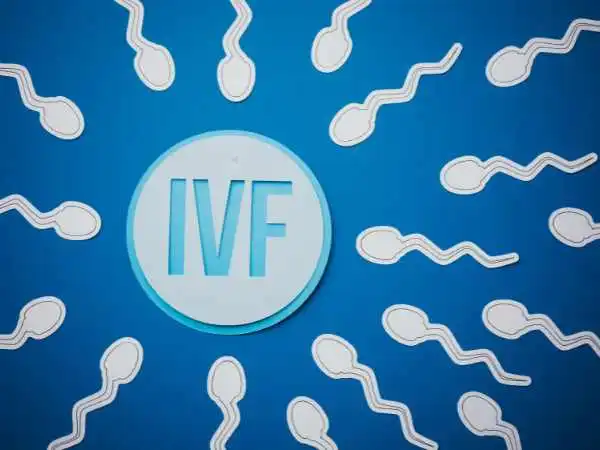Millions of men and women worldwide are struggling with male infertility and female infertility, an often complex issue. For those hoping to start their own families or maintain reproductive health, understanding sperm health as well as its causes is of paramount importance in understanding infertility and its possible treatments or lifestyle changes that could improve it. This article details these aspects, outlining factors influencing sperm quality as well as potential treatments and lifestyle modifications which could increase fertility.
WHAT IS SPERM HEALTH?
Sperm Health can be measured in several ways, including its count, motility, morphology and overall vitality.
Count: Refers to how many sperm are in an equivalent volume of semen; normally healthy levels start around 15 million per milliliter.
Motility: Sperm motility refers to their speed or movement rate through the female reproductive system, and healthy ones should have enough ability to find and fertilize an egg when necessary.
Shape (Sperm Morphology): Sperm morphology refers to their appearance and structure, with any abnormalities interfering with penetration of sperm into an egg and fertilization.
Vitality: Vitality refers to the proportion (%) of living sperm cells present in a seminal fluid sample. A high percentage (>50%) is essential in fertility and its preservation.
Common Causes of Male Infertility
Multiple factors can lead to male infertility. These can be broken down into three main categories: medical, environmental and lifestyle causes. But here we focus on medical causes first, because often medical problems have their source elsewhere in a man’s health or lifestyle – making male fertility hard.
Varicocele:
An enlargement of the veins draining the testicle can reduce quality and production of sperm, leading to male infertility in some cases and ultimately being reversed with treatment. It is one reversible cause for male infertility among many others.
Infections:
Certain infections can disrupt how sperm is made or its physical appearance. Common examples include sexually transmitted infections (STIs) like Chlamydia or Gonorrhea as well as prostatitis or orchitis.
Ejaculation Issues:
Issues associated with ejaculation such as retrograde ejaculation – where semen enters the bladder during orgasm instead of leaving through the penis – can contribute to male infertility as no semen would leave from his penis to form fertile eggs during orgasm. Diabetes, spinal cord injuries and surgeries that affect bladder, prostate glands or urethra could all play a part.
Antibodies:
Sometimes the immune system misinterprets sperm as invaders, creating antibodies to target and kill them off; unfortunately this reduces their movement making it impossible for any egg to become fertilized.
Tumors:
Malignant and benign tumors both have direct adverse impacts on male reproductive organ function, hormone production and overall reproductive health status of men respectively, while cancer treatments such as radiation and chemotherapy may affect fertility by altering hormone production through radiation treatments
Undescended Testicles
From conception through birth, this condition occurs when one or both testicles remain within the abdomen instead of moving to the scrotum as planned, potentially leading to reduced fertility in future years.
Hormonal Imbalances
Sperm production relies on having healthy hormones. Any disruption of this balance through hypothalamus disorders, pituitary gland disorders, thyroid conditions or adrenal gland disorders could result in infertility.
Genetic Disorders
Sperm production and function may be affected by genetic conditions like cystic fibrosis, Klinefelter syndrome and chromosomal abnormalities that need special care and genetic counseling to manage.
Environmental Causes
Exposure to Industrial Chemicals:
Overexposure to herbicides, pesticides, heavy metals and solvents will have an adverse impact on sperm production and quality in the long term.
Radiation and X-rays:
Exposure to radiation could significantly decrease sperm count or even result in its complete production ceasing altogether, while large doses could even lower fertility for good. Long term radiation exposure could have permanent consequences that halt its development entirely.
Overheating of Testicles:
Elevated temperatures could negatively impact sperm’s function and production rates, potentially contributing to cases of infertility. Clothing which increases temperatures in scrotal region as well as hot tubs may all play a part in contributing to cases involving infertility.
Heavy Metal Exposure:
Cadmium exposure has been found to negatively impact motility as well as reduce sperm counts; lead exposure also affects motility and decreases both motility and count.
Improving Sperm Health
There are various methods that men can follow to increase the quality of their sperm for increased fertility and higher chances of conception.
Healthy Diet:
Eating a diet rich in fruits, vegetables, whole grains and lean proteins provides essential nutrients that contribute to sperm health. Foods rich in antioxidants like berries and nuts also protect sperm cells against damage caused by oxidation.
Exercise:
Exercise can assist with maintaining an ideal weight, balancing hormones and relieving tension levels. Aim for 30 minutes of moderate exercise most days of the week for best results.
Avoid Toxins:
Environmental pollutants such as pesticides, heavy metals and industrial chemicals must not come in contact with your sperms. If working in such an environment requires you to use protective gear.
Quitting Smoking and Limiting Alcohol:
Both tobacco smoking and excessive alcohol intake have detrimental effects on sperm quality and quantity, so giving up or even occasionally using cigarettes will improve one’s fertility health status.
Addressing Stress:
Relaxation methods such as yoga, meditation and deep breathing exercises may help restore hormonal equilibrium leading to increased production of sperms.
Maintaining a Healthy Weight:
Restoring hormone balance while increasing sperm production is achievable if we lose body weight through appropriate nutrition and regular workouts.
Conclusion
For men concerned with their reproductive health, it’s essential that they gain an understanding of sperm health and its causes of male infertility. By taking into account medical, environmental, and lifestyle factors they can take steps towards increasing fertility – regular medical check-ups, healthy living conditions, avoiding hazardous materials, as well as regular preconception screening can significantly improve sperms’ health, leading to improved conception rates. Healthcare providers or fertility specialists may provide supportive advice or treatment solutions should you experience difficulty getting pregnant.

























